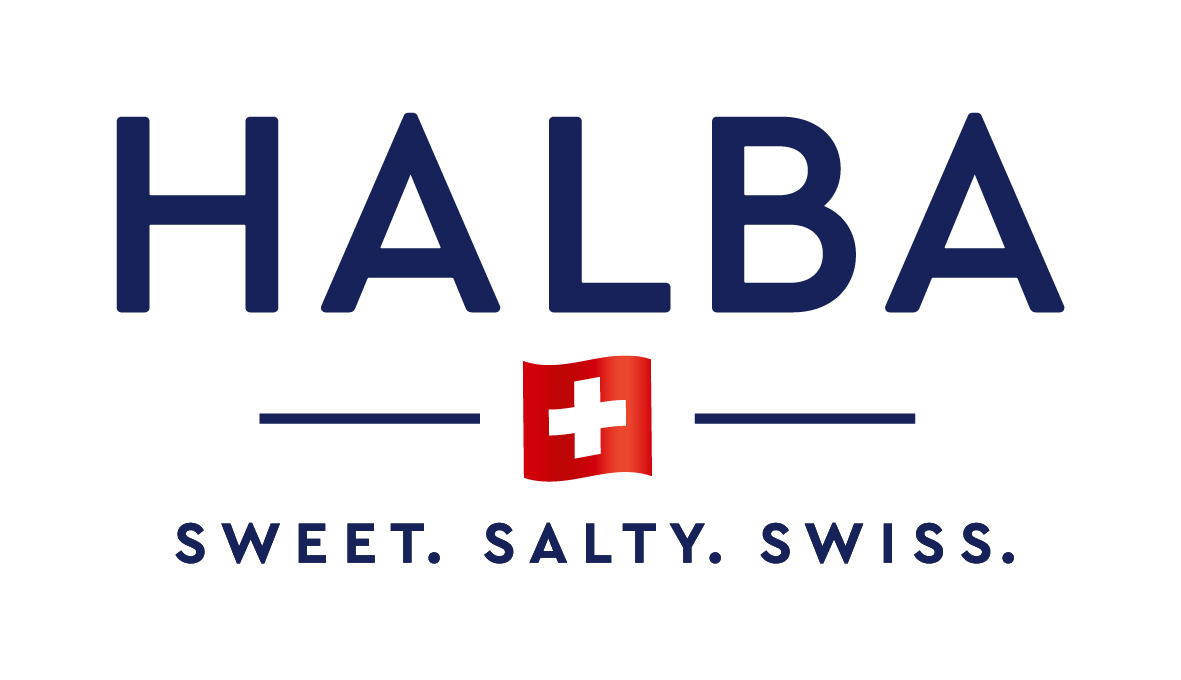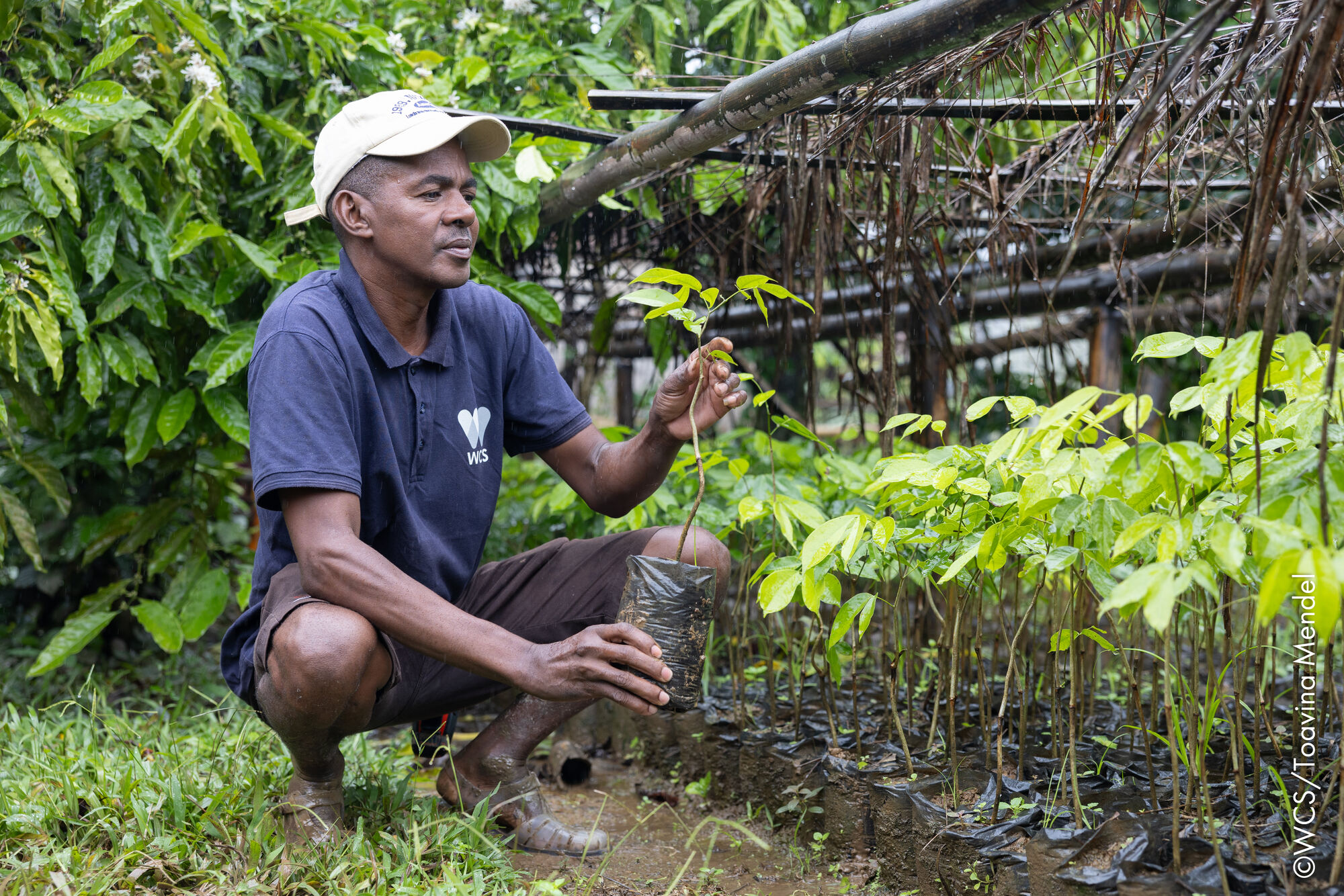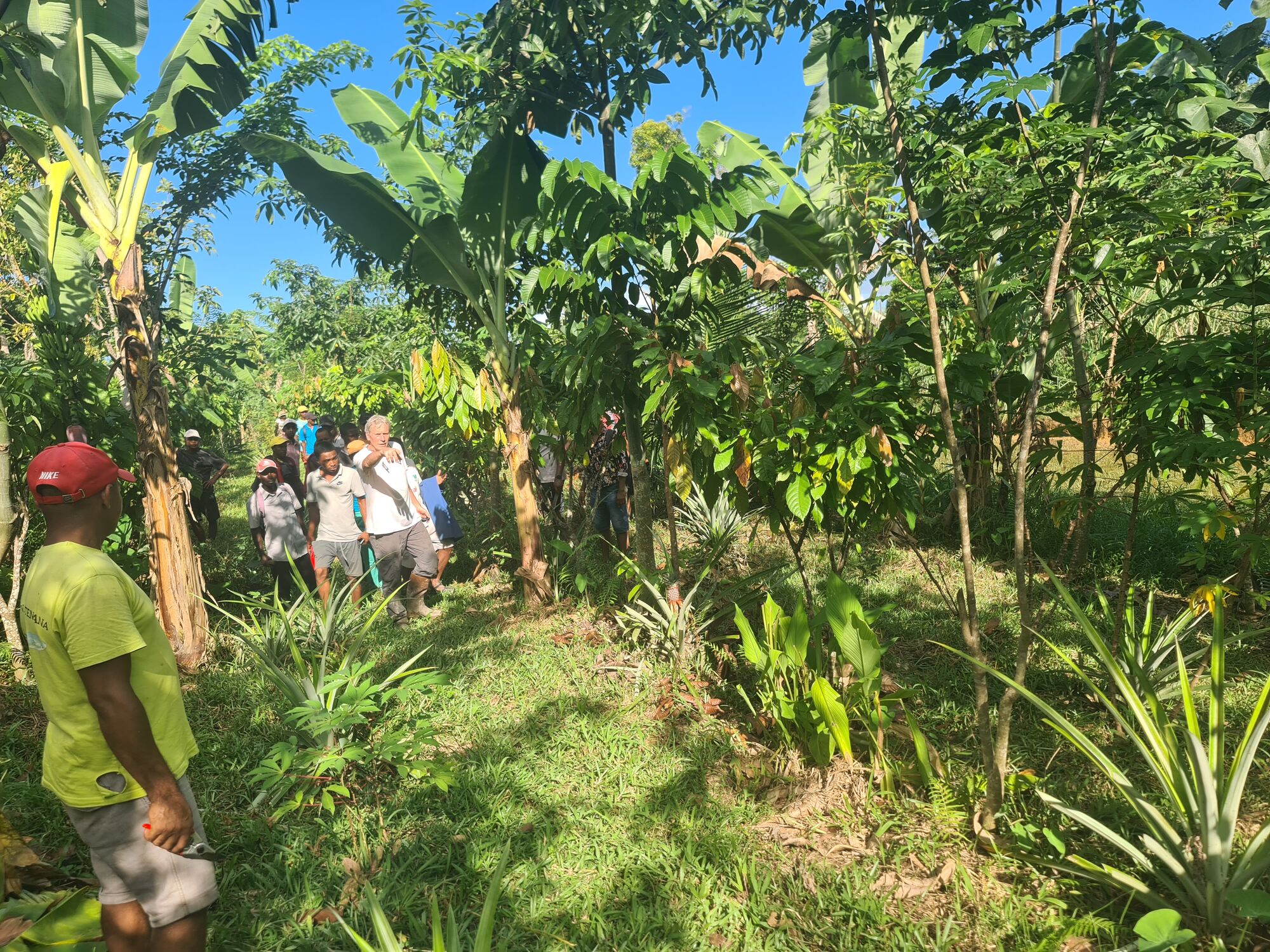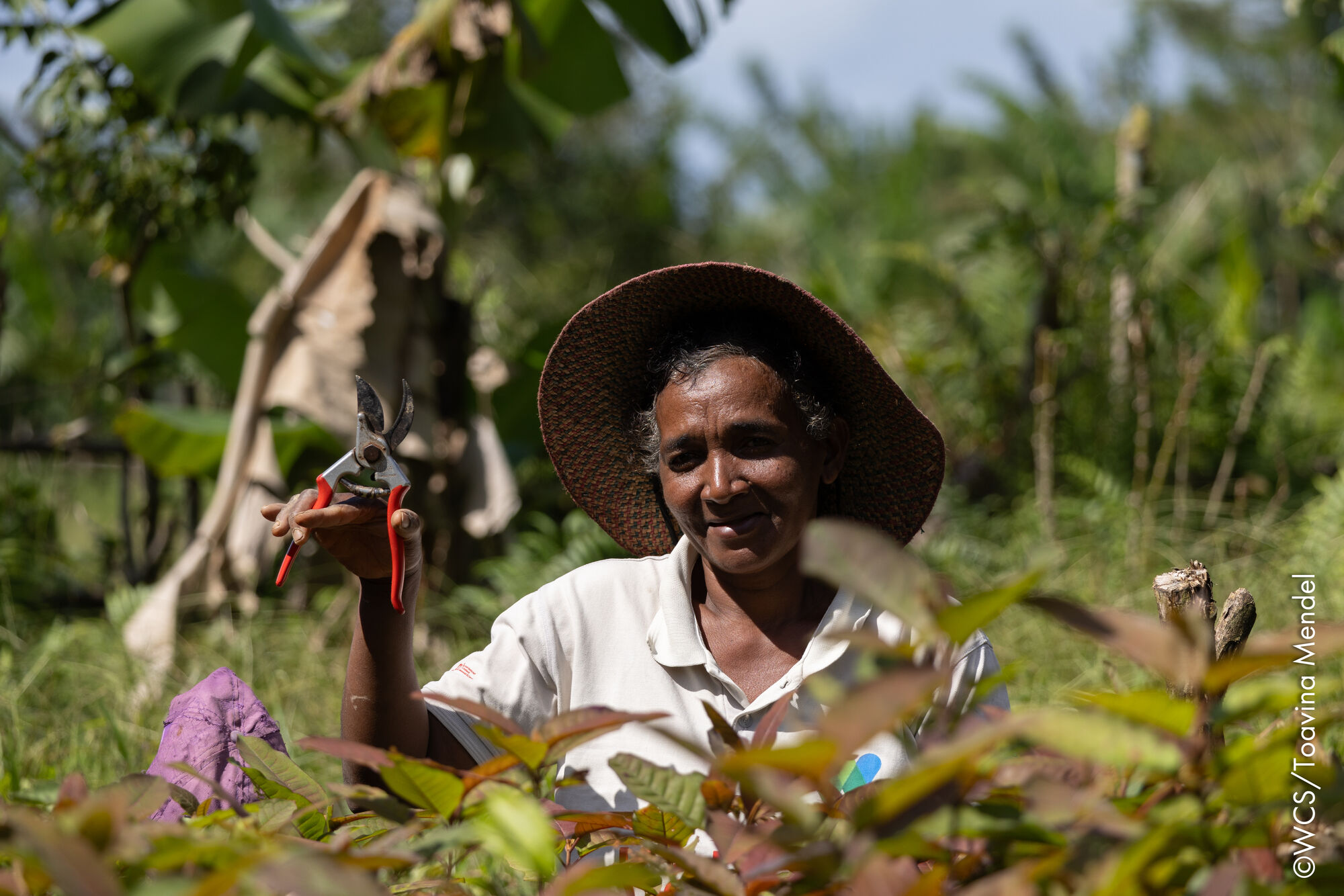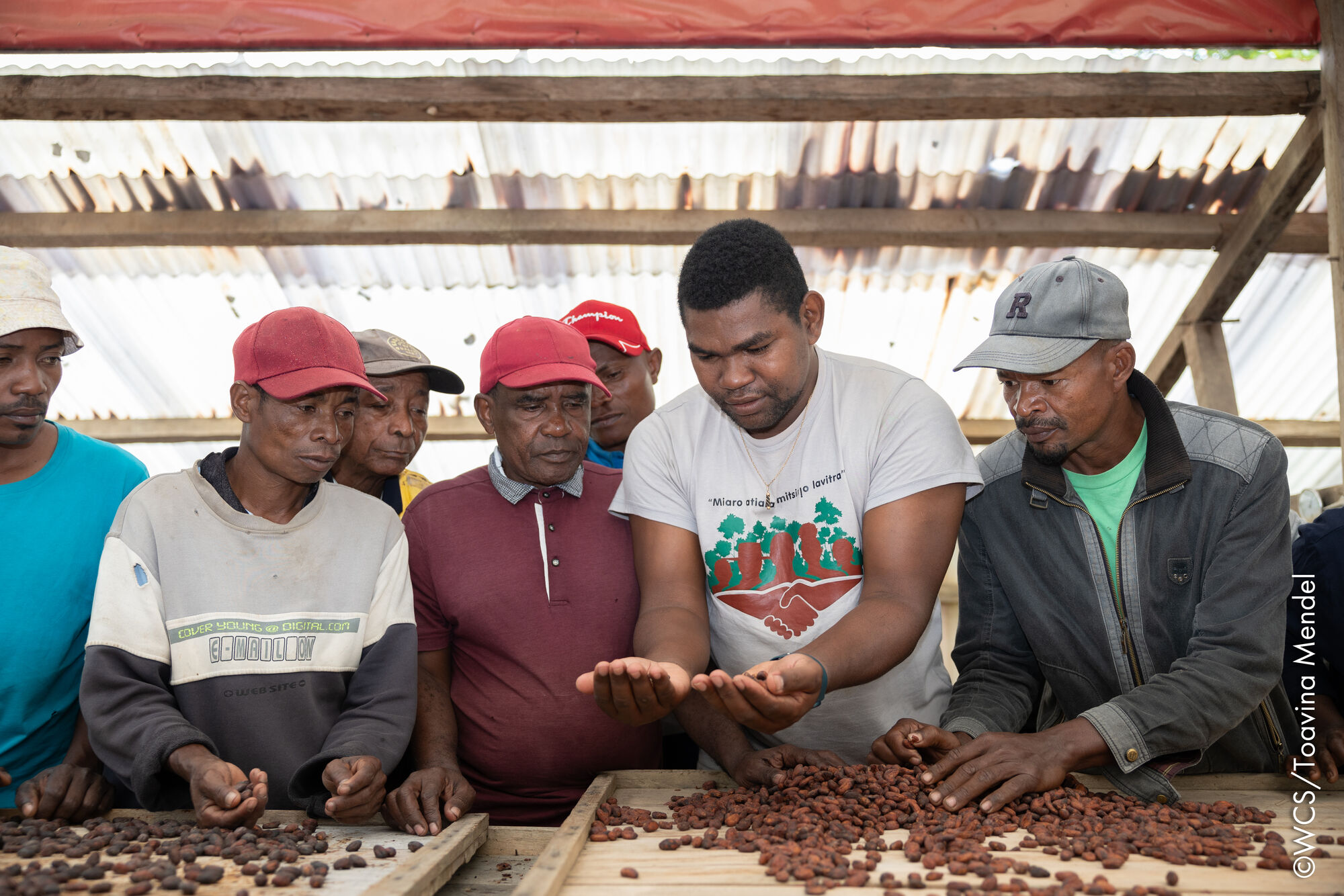Conservation Enterprise
What is the main objective of the project?
The main objective of the project is to promote sustainable livelihoods and forest conservation in the MaMaBay region of Madagascar by introducing and commercialising dynamic agroforestry (DAF) systems.
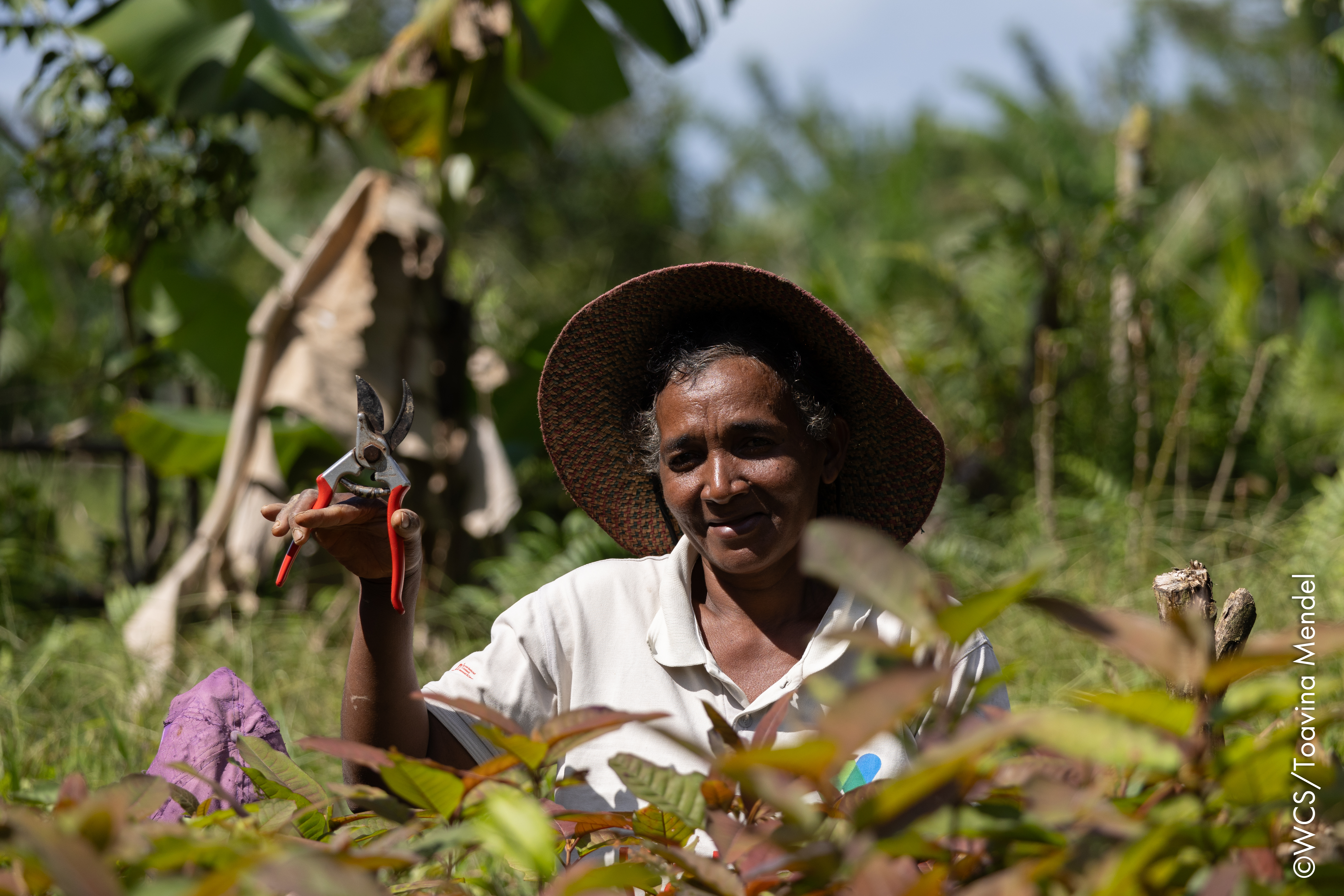
"The project has given us the tools to change our practices and become leaders in sustainable farming. We hope to build lasting relationships with buyers who value our efforts, and WCS has helped us make those connections. The training we’ve received in agroforestry and cooperative management has strengthened our community, giving us the knowledge to sustain ourselves"
How the project contributes to sustainable cocoa production
By integrating cocoa with subsistence crops and specifically supporting the commercialisation of associated crops from the DAF systems, the project aims to reduce deforestation caused by inefficient land use, stabilise local incomes, and break the cycle of poverty and ecological degradation.
What is innovative about this project?
The project is innovative because it combines nature conservation objectives with Dynamic Agroforestry (DAF). With DAF, land productivity in the buffer zones of the Makira Natural Park, Masoala National Park, and Antongil Bay can be significantly increased, even on land that is severely degraded. In Madagascar, DAF is an innovation introduced by HALBA.
However, one of the bottlenecks for further scaling is the marketing of the by-crops. And this is precisely where the Conservation Enterprise is to come in. Conservation Enterprise enhances market access and income for local farmers of DAF by-products, leveraging the region’s global ecological significance to increase their market value.
How do you plan to ensure the scalability of the sustainable innovations implemented in the cocoa value chain?
By-products from dynamic agroforestry plots will be marketed locally in Maroantsetra and nationally through partnerships with exporting companies focused on organic and fairtrade supply chains. This ensures long-term economic viability for farmers and supports the sustainability of conservation efforts, positioning the project as a global model for conservation-driven agriculture.
Organisations involved

